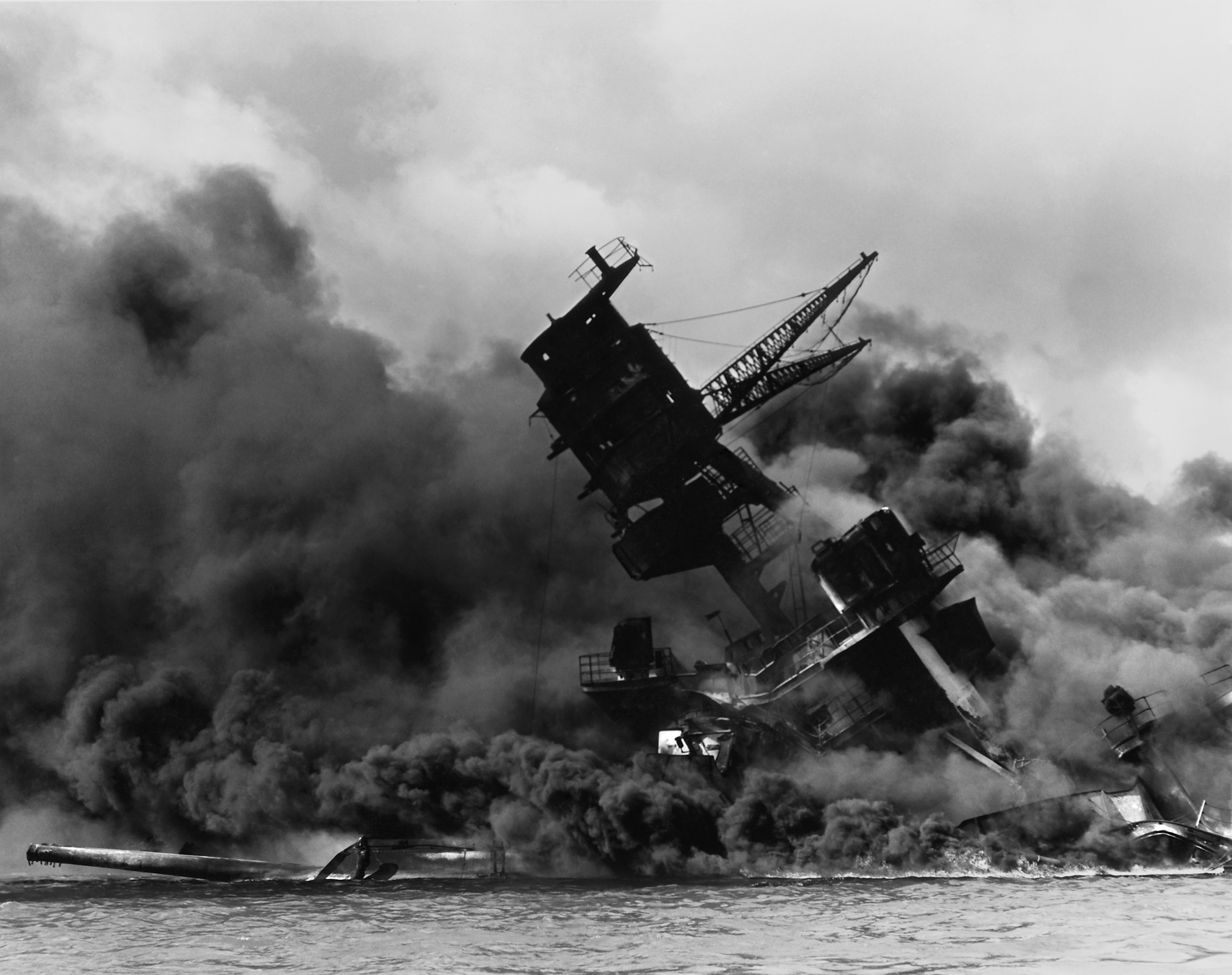- Messages
- 15,563
- Location
- East Central Indiana
[video=youtube;cMXnCwQLlac]http://www.youtube.com/watch?v=cMXnCwQLlac[/video]

Of course, the sad truth is that there had been no peace in the Pacific since 1931, nor would there be until Japanese militarism was crushed.
An excellent summary. Pearl Harbor may have been the event that finally forced the ostriches to pull their heads out of the sand, but it was just another day's work for a regime which in every way equaled the evil of the Nazis. They didn't worry too much about the Jews because they were too busy trying to exterminate as many Chinese and Koreans as possible, whether thru starvation, torture, or out and out murder.
Japanese aggression in the Pacific before 1941 is often forgotten and glossed over by Western historians in my opinion.
Are you implying we should use the same thread for an event that happens every year?OP: The search engine is your friend. We've got a 12-07-1941 thread going back at least six or seven years...
OP: The search engine is your friend. We've got a 12-07-1941 thread going back at least six or seven years...
Why do you think Western historians forget about it? That's the second Sino-Japanese War and its background since the Mukden Incident in 1931
The reality of Japan as a relentless genocidal aggressor from 1931 on doesn't fit in well with the desire by many today to paint Japan purely as a victim of the events of 1945. Ten million dead Chinese and Korean civilians would disagree with that position.
 John Lofgren Monkey Boots Shinki Horsebuttt - $1,136 The classic monkey boot silhouette in an incredibly rich Shinki russet horse leather.
John Lofgren Monkey Boots Shinki Horsebuttt - $1,136 The classic monkey boot silhouette in an incredibly rich Shinki russet horse leather.  Grant Stone Diesel Boot Dark Olive Chromexcel - $395 Goodyear welted, Horween Chromexcel, classic good looks.
Grant Stone Diesel Boot Dark Olive Chromexcel - $395 Goodyear welted, Horween Chromexcel, classic good looks.  Schott 568 Vandals Jacket - $1,250 The classic Perfecto motorcycle jacket, in a very special limited-edition Schott double rider style.
Schott 568 Vandals Jacket - $1,250 The classic Perfecto motorcycle jacket, in a very special limited-edition Schott double rider style. The reality of Japan as a relentless genocidal aggressor from 1931 on doesn't fit in well with the desire by many today to paint Japan purely as a victim of the events of 1945. Ten million dead Chinese and Korean civilians would disagree with that position.
The reality of Japan as a relentless genocidal aggressor from 1931 on doesn't fit in well with the desire by many today to paint Japan purely as a victim of the events of 1945. Ten million dead Chinese and Korean civilians would disagree with that position.
Betty McIntosh’s account of the attack on Pearl Harbor went unpublished until today. Now 97, she’s still sharp as a whip and speaks to The Fold’s Brook Silva-Braga about what she remembers from that infamous day and her later work as a wartime spy.
Bombs were still dropping over the city as ambulances screamed off into the heart of the destruction. The drivers were blood-sodden when they returned, with stories of streets ripped up, houses burned, twisted shrapnel and charred bodies of children.
In the morgue, the bodies were laid on slabs in the grotesque positions in which they had died. Fear contorted their faces. Their clothes were blue-black from incendiary bombs. One little girl in a red sweater, barefoot, still clutched a piece of jump-rope in her hand.
I talked with evacuees. From Hickam, a nurse who had dropped to the floor in the hospital kitchen as machine gun bullets dotted a neat row of holes directly above her; from Schofield, a woman who wanted me to send word to her sweetheart “somewhere in Honolulu” that she was still alive; from Pearl Harbor, a nurse who wanted scraps of paper and pencil stubs to give to the boys in the hospital who had last messages they wanted sent home; a little girl named Theda who had a big doll named Nancy and who told me in a quiet voice that “Daddy was killed at Hickam.”